
Amira Benhima
A passionate advocate for holistic wellness and natural beauty, is an accomplished author specializing in the benefits and uses of Argan oil, with years of experience exploring its wonders.
Key Takeaways
Did you know that acne affects approximately 50 million Americans each year? If you’re someone who has struggled with acne, you’re not alone. The good news is that there is ongoing research on the potential benefits of argan oil in acne prevention. Studies have shown that argan oil is noncomedogenic and can help balance sebum production, hydrate dry skin, and reduce inflammation. But does it really work? Stay tuned to learn more about the mechanisms of argan oil, clinical studies on its effectiveness, and best practices for using it to address acne-related concerns.
- Argan oil prevents acne by regulating sebum production and reducing inflammation.
- It is a natural and noncomedogenic remedy that hydrates the skin without clogging pores.
- The antioxidants in argan oil protect the skin from free radicals and help fade acne scars.
- Compared to traditional acne treatments, argan oil is gentler with fewer side effects and improves overall skin health.
Potential Benefits of Argan Oil for Acne Prevention
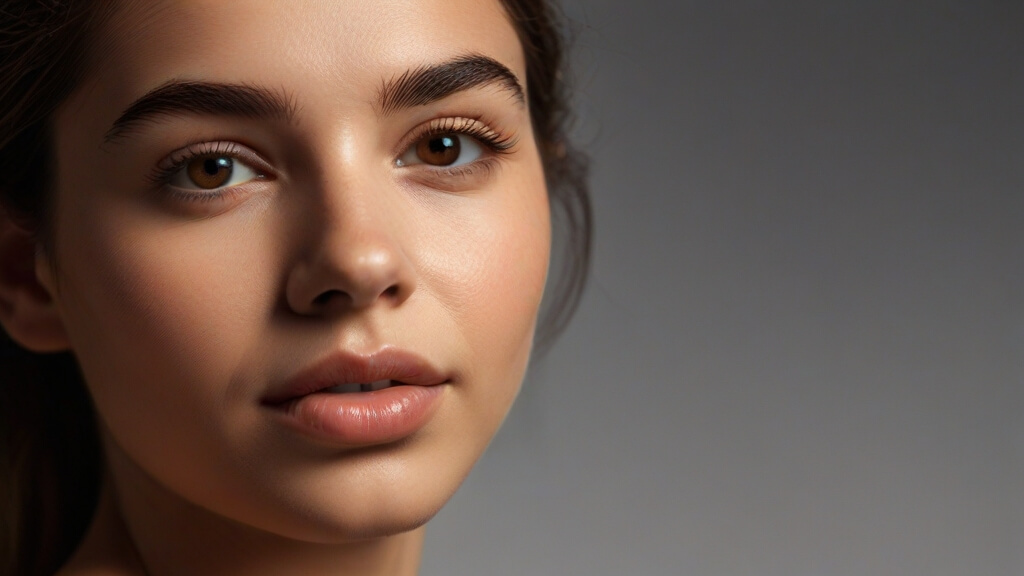
Using argan oil for acne prevention has numerous potential benefits due to its noncomedogenic nature, sebum-balancing properties, anti-inflammatory effects, and ability to promote skin hydration. Argan oil is an excellent choice for individuals with acne-prone skin because it does not clog pores. It allows the skin to breathe and prevents the formation of blackheads and whiteheads. Additionally, argan oil helps to balance sebum production, which is essential for preventing excess oiliness that can contribute to acne breakouts. By regulating sebum levels, argan oil can help keep the skin clear and blemish-free.
One of the key advantages of argan oil for acne prevention is its anti-inflammatory effects. Acne is often accompanied by redness and swelling, which can be effectively reduced by the anti-inflammatory properties of argan oil. It soothes the skin and calms the inflammation associated with acne breakouts, promoting a smoother and more even complexion.
Furthermore, argan oil is highly moisturizing and can help hydrate the skin. This is crucial because acne treatments often lead to dryness, which can exacerbate acne symptoms. Regular use of argan oil can help maintain the skin’s moisture levels, preventing dryness and keeping the skin supple and healthy.
Moreover, argan oil has been reported to fade acne scars and dark spots, improving the overall tone and texture of the skin. Its nourishing properties help to regenerate the skin cells, promoting the healing process and reducing the appearance of acne scars over time. Dark spots caused by acne can also be lightened with the use of argan oil, leading to a more even complexion.
Mechanisms of Argan Oil in Acne Prevention
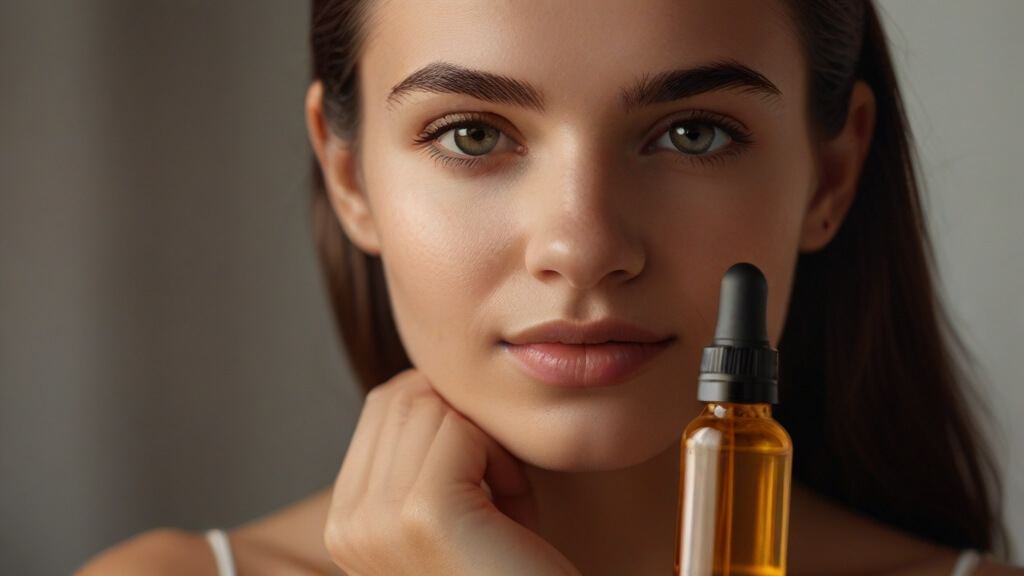
To understand how argan oil helps prevent acne, it is important to explore the mechanisms behind its effectiveness. Here are four key mechanisms by which argan oil contributes to acne prevention:
- Regulation of sebum production: Argan oil contains linoleic acid, a fatty acid that helps regulate sebum production. By balancing sebum levels, argan oil reduces the likelihood of clogged pores and acne formation.
- Anti-inflammatory properties: The anti-inflammatory properties of argan oil can help calm inflamed acne-prone skin. This can reduce redness, swelling, and discomfort associated with acne breakouts.
- Antioxidant protection: Argan oil is rich in antioxidants, which can protect the skin from free radicals. Free radicals are unstable molecules that can damage skin cells and contribute to acne development. By neutralizing these free radicals, argan oil helps prevent acne formation.
- Moisturizing properties: The moisturizing properties of argan oil are beneficial for acne-prone skin. Proper skin hydration is essential for maintaining a healthy skin barrier function. When the skin is dehydrated, it can become more susceptible to acne breakouts. Regular use of argan oil helps keep the skin moisturized and reduces the risk of acne.
Clinical Studies on Argan Oil and Acne

Clinical studies have provided valuable insights into the efficacy of argan oil in the prevention and management of acne. These studies have shown that argan oil possesses several properties that make it a potential treatment option for individuals with acne-prone skin.
One of the key findings from clinical studies is that argan oil has anti-inflammatory properties, which can help reduce inflammation associated with acne. This is important because inflammation plays a significant role in the development and severity of acne.
Additionally, argan oil contains linoleic acid, a fatty acid that has been found to regulate sebum production. Excessive sebum production can contribute to the formation of acne. By applying argan oil topically, it can help balance sebum production and potentially prevent acne breakouts.
The antioxidant properties of argan oil have also been highlighted in clinical studies. These antioxidants help protect the skin from oxidative stress, a factor that can contribute to the development of acne. By reducing oxidative stress, argan oil may help prevent acne formation.
Furthermore, research suggests that argan oil can aid in maintaining skin hydration without clogging pores. This is crucial for individuals with acne-prone skin as proper hydration is essential for healthy skin. By keeping the skin moisturized, argan oil can prevent dryness and irritation that may exacerbate acne.
Argan Oil Vs. Traditional Acne Treatments
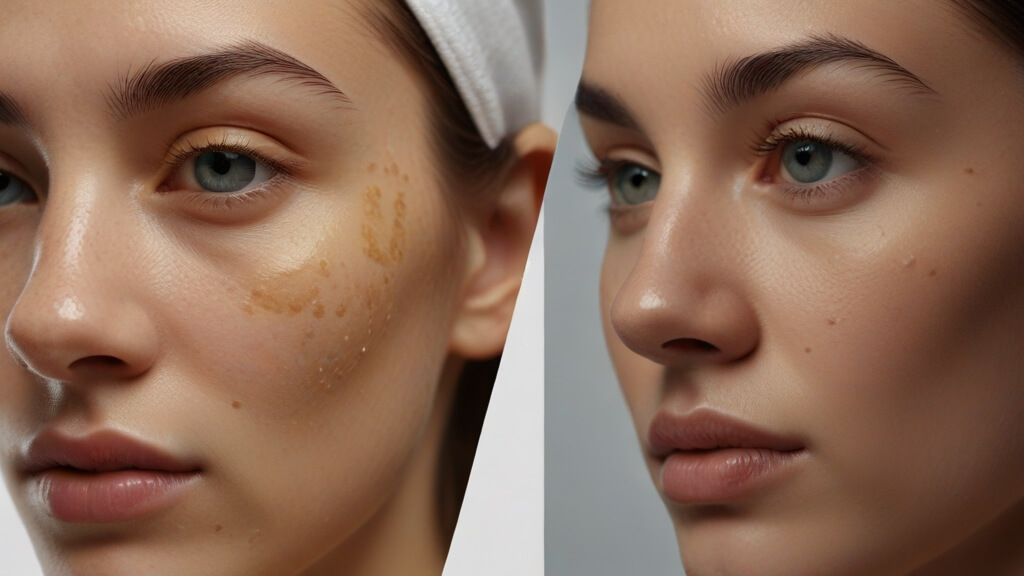
When comparing argan oil to traditional acne treatments, several points should be considered. Firstly, the efficacy of argan oil in reducing acne lesions and inflammation has been demonstrated in clinical studies. Additionally, argan oil presents a natural alternative with fewer side effects compared to traditional treatments. Lastly, the long-term results of using argan oil for acne prevention should be assessed to determine its effectiveness over time.
Efficacy of Argan Oil
Argan oil has been found to be as effective as traditional acne treatments in reducing acne lesions and inflammation. Its efficacy is attributed to its anti-inflammatory and antibacterial properties, which help in preventing and treating acne effectively. Additionally, the presence of linoleic acid in argan oil helps regulate sebum production, a key factor in acne development. This makes argan oil a suitable option for acne-prone skin without clogging pores, as it is non-comedogenic. By regularly applying argan oil, you can improve your overall skin health and reduce the appearance of acne scars. Its effectiveness, combined with its natural and nourishing properties, makes argan oil a promising option for acne prevention and treatment.
Side Effects Comparison
Comparatively, traditional acne treatments like benzoyl peroxide or salicylic acid may cause skin dryness, irritation, and peeling, while argan oil’s moisturizing and soothing properties make it a gentler alternative. The table below compares the side effects of traditional treatments with argan oil:
| Traditional Treatments | Side Effects | Argan Oil | Side Effects |
|---|---|---|---|
| Benzoyl Peroxide | Skin dryness | Non-comedogenic | No side effects |
| Irritation | Moisturizing | ||
| Peeling | Soothing | ||
| Salicylic Acid | Skin dryness | Non-comedogenic | No side effects |
| Irritation | Moisturizing | ||
| Peeling | Soothing |
Argan oil’s non-comedogenic nature makes it less likely to clog pores and aggravate acne, unlike some conventional acne medications. Additionally, argan oil is gentle on the skin and less likely to cause allergic reactions or sensitivity. The natural composition of argan oil makes it a preferred choice for individuals seeking a milder, more natural alternative for acne prevention without the potential side effects of conventional treatments.
Long-term Results Assessment
Long-term studies have shown that argan oil consistently improves acne lesions and reduces acne severity and frequency of breakouts, comparable to standard acne medications. Here are some key findings from these studies:
- Sustained improvement: Patients using argan oil for acne prevention experience long-lasting benefits, with continued improvement in acne lesions over several months.
- Efficacy: Argan oil demonstrates comparable efficacy to traditional acne treatments in reducing both the severity of acne and the frequency of breakouts.
- Reduced side effects: Compared to conventional acne treatments, argan oil users experience fewer side effects, making it a more tolerable option for long-term use.
- Inflammation reduction: Continual use of argan oil leads to a significant decrease in acne-related inflammation and redness, resulting in a clearer complexion.
These findings, supported by clinical assessments, indicate that argan oil is an effective and well-tolerated option for long-term acne prevention, without the development of resistance commonly seen with some acne medications.
Best Practices for Using Argan Oil for Acne
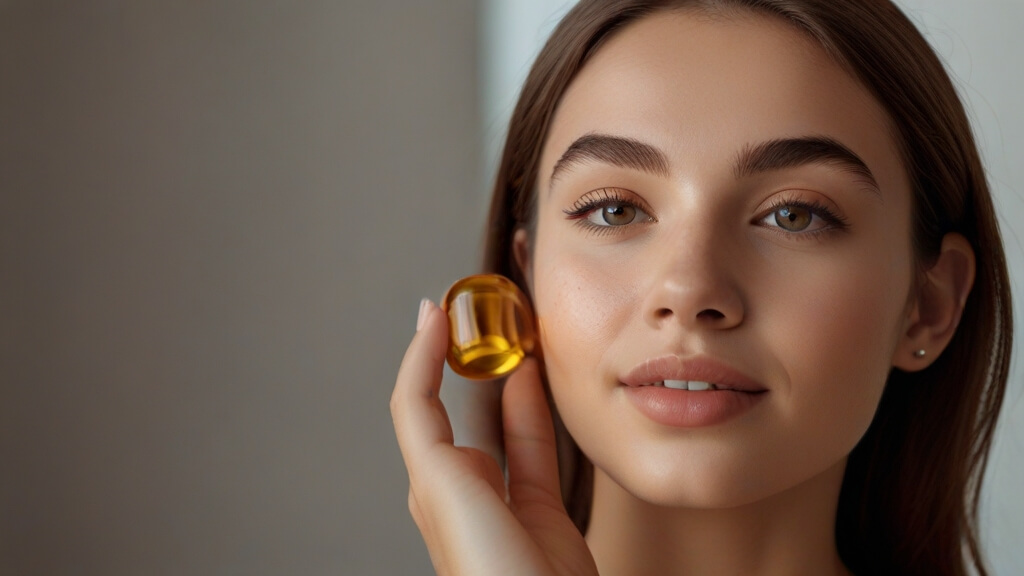
To effectively use argan oil for acne, follow these best practices. First, ensure that you have acne-prone skin, as argan oil is specifically beneficial for this skin type. Argan oil is noncomedogenic, meaning it won’t clog your pores and contribute to further breakouts.
When applying argan oil, start with a clean face. Use a gentle cleanser to remove any dirt, oil, or makeup before applying the oil. This will ensure that the argan oil can penetrate your skin effectively.
Next, apply a few drops of argan oil to your fingertips and gently massage it onto your face. Focus on areas that are prone to acne, such as the forehead, chin, and cheeks. The oil will help balance sebum production, reducing excess oiliness that can lead to acne.
Argan oil’s anti-inflammatory properties can help reduce redness and inflammation associated with acne breakouts. It can also help fade acne scars and dark spots over time. Be consistent with your use of argan oil to see these long-term benefits.
Potential Side Effects and Precautions of Argan Oil
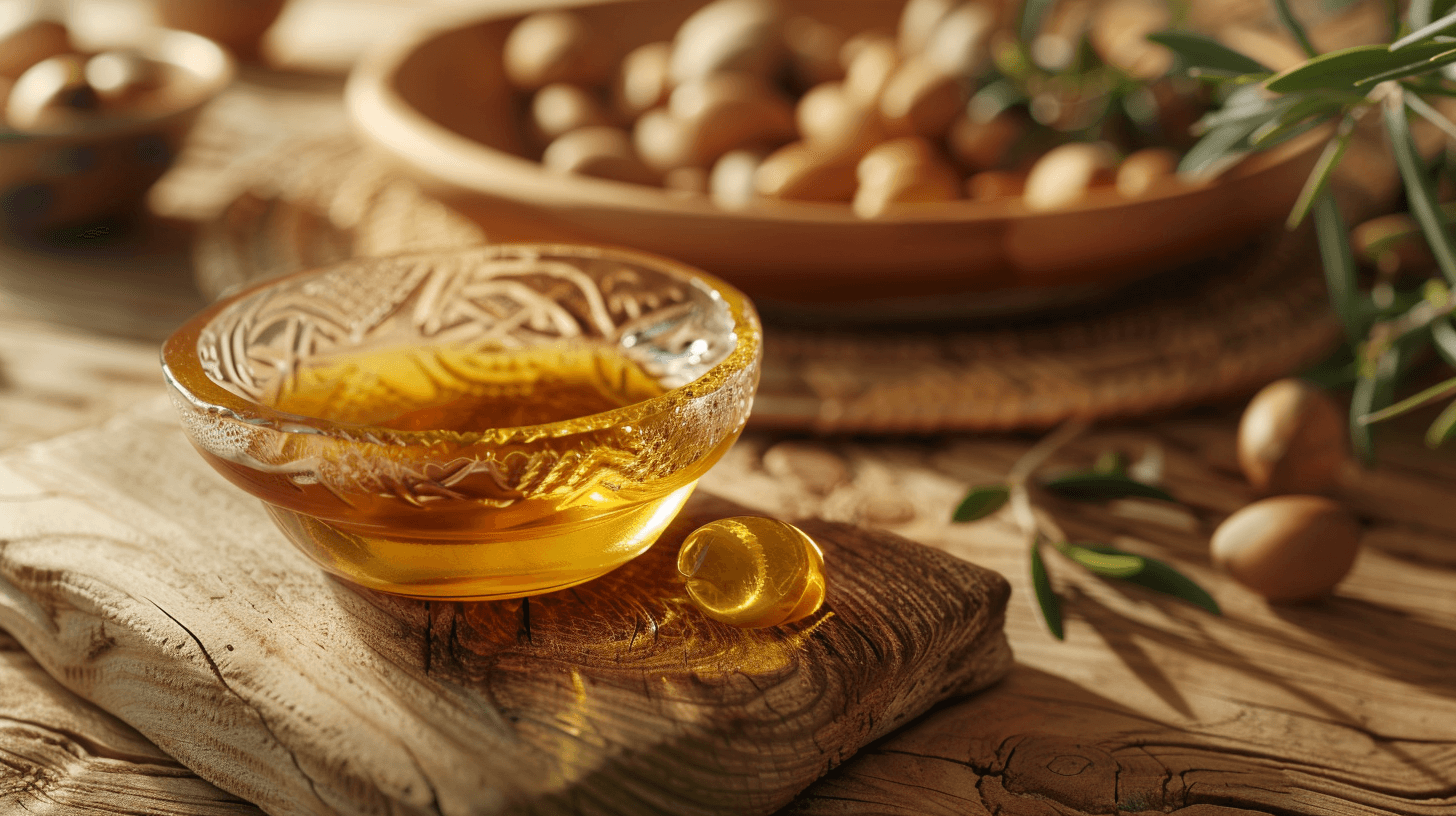
Before incorporating argan oil into your skincare routine, it is important to be aware of potential side effects and take necessary precautions. Allergic reactions, including skin irritation, are possible side effects, especially in individuals with known allergies. If you experience persistent symptoms after using argan oil, it is recommended to discontinue use and consult a healthcare professional.
Allergic Reactions to Argan Oil
If you have a nut allergy, it is important to be aware of the potential allergic reactions that may occur when using argan oil. Here are some important facts to consider:
- Allergic reactions to argan oil are possible, especially in individuals with nut allergies.
- Symptoms of allergic reactions may include redness, itching, swelling, or rash upon skin contact with argan oil.
- To determine if you may have an adverse reaction, perform a patch test by applying a small amount of argan oil to a small area of your skin and monitoring for any signs of redness, itching, swelling, or rash.
- If you experience any negative symptoms that persist or worsen, it is important to discontinue the use of argan oil and consult a healthcare professional.
Skin Irritation Potential
The skin irritation potential of argan oil is generally low, making it suitable for acne-prone skin. Due to its non-comedogenic nature, argan oil is unlikely to clog pores and cause breakouts. However, allergic reactions may occur in some individuals, leading to skin irritation. To minimize the risk of adverse reactions, it is recommended to perform a patch test before using argan oil. Apply a small amount of the oil to a small area of skin and monitor for any signs of sensitivity, such as redness or discomfort. While rare, if any skin irritation occurs after applying argan oil, it is important to discontinue use and consult a healthcare professional. Regular monitoring of the skin is crucial to ensure the safe use of argan oil.
Use During Pregnancy
Limited research exists on the safety and efficacy of using argan oil during pregnancy, making it important to consider potential side effects and take necessary precautions. Here are some key points to keep in mind:
- Allergic reactions and skin sensitivities: Pregnant individuals may be more prone to allergic reactions or skin sensitivities, so it’s essential to be cautious when using argan oil.
- Patch testing: Before using argan oil during pregnancy, it is recommended to perform a patch test to check for any adverse reactions.
- Consultation with a healthcare provider: It is advisable to consult with a healthcare provider before incorporating argan oil into your skincare routine during pregnancy. They can provide personalized advice based on your specific situation.
- Topical use: While argan oil is generally considered safe for topical use, individual reactions can vary, especially during pregnancy. It’s important to monitor your skin for any changes and discontinue use if any concerns arise.
Conclusion: Is Argan Oil Effective for Acne Prevention?
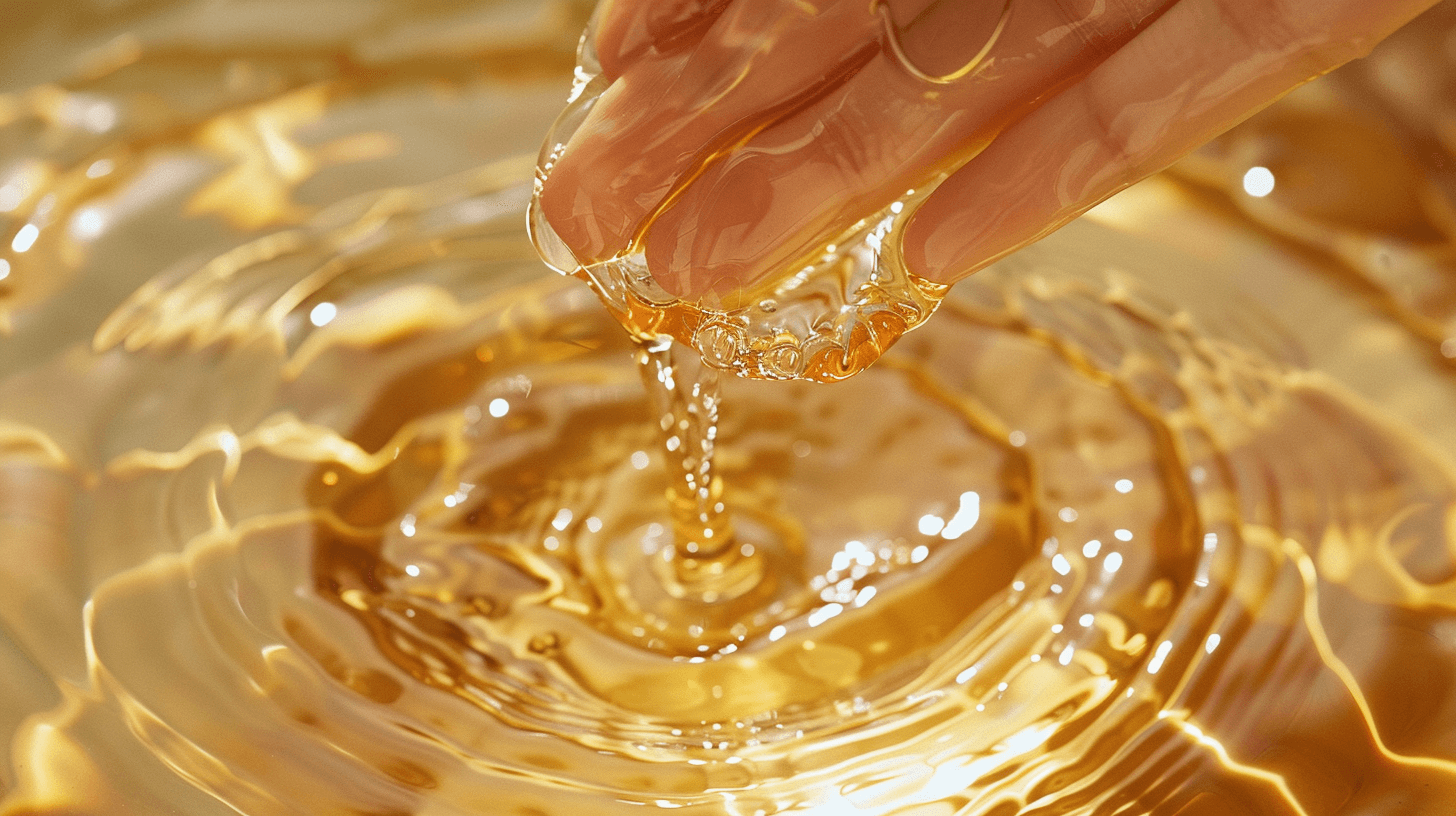
Based on clinical studies and research, incorporating argan oil into your skincare routine has shown promise in effectively preventing acne and promoting clearer, healthier skin. Argan oil’s noncomedogenic properties make it an ideal choice for those struggling with acne-prone skin. By balancing sebum production, argan oil helps prevent the clogging of pores and reduces the likelihood of acne breakouts.
Furthermore, the anti-inflammatory and moisturizing properties of argan oil contribute to its effectiveness in acne prevention. It helps reduce the inflammation associated with acne, leading to a calmer and clearer complexion. The ability of argan oil to hydrate dry skin without clogging pores is especially beneficial for individuals with acne, as it addresses both the dryness and oiliness often experienced by those with acne-prone skin.
Research suggests that the linoleic acid content in argan oil plays a significant role in preventing acne. Linoleic acid helps regulate skin oil production, preventing excessive sebum accumulation that can lead to acne. Additionally, it helps reduce the formation of acne lesions, contributing to overall clearer skin.
While individual results may vary, incorporating argan oil into your skincare routine can be a valuable addition for acne prevention and improved skin health. Its moisturizing, noncomedogenic, and anti-inflammatory properties, along with the presence of linoleic acid, make it a beneficial choice for those seeking to prevent acne and maintain a healthier complexion.
Frequently Asked Questions
Does Argan Oil Reduce Acne?
Argan oil is effective for reducing acne due to its non-comedogenic properties, which means it won’t clog your pores. It helps balance sebum production, hydrates dry skin, and has anti-inflammatory effects, reducing redness and inflammation associated with acne. To incorporate argan oil into your skincare routine, apply a few drops to clean, dry skin, focusing on problem areas. While more research is needed, argan oil shows promise as a natural remedy for acne, offering an alternative to other acne treatments.
Is Argan Oil Recommended by Dermatologists?
Dermatologists often recommend argan oil for acne-prone skin because of its many benefits for overall skin health. It can help reduce inflammation, balance sebum production, and soothe irritated skin. To incorporate argan oil into your skincare routine, apply a few drops to clean, dry skin and gently massage it in. While argan oil is generally safe, it’s important to patch test first and be aware of any potential side effects. Overall, argan oil is a natural alternative to chemical-based acne treatments with proven effectiveness in preventing acne.
What Is the Disadvantage of Argan Oil on Face?
The potential disadvantages of using argan oil on your face include skin sensitivity, potential allergic reactions, and clogged pores. While argan oil has a low comedogenic rating, using it excessively or with other pore-clogging products may lead to breakouts. Moreover, long-term use of argan oil may contribute to excessive oiliness and affect the texture of your skin. It is important to note that argan oil may not be suitable for everyone, especially those with hormonal acne or acne scarring.
Is Jojoba Oil or Argan Oil Better for Acne?
Jojoba oil and argan oil both have benefits for acne-prone skin, but it really depends on your individual needs. Jojoba oil helps regulate sebum production and has acne-fighting properties due to its natural wax esters. On the other hand, argan oil is non-comedogenic and has anti-inflammatory properties, which can soothe inflammation associated with acne. Ultimately, it’s important to consider your skin’s tolerance and the specific benefits you’re looking for when choosing between jojoba oil and argan oil for acne prevention.
Related Articles
Traditional Argan Oil Uses by Natives
Discover the astonishing array of traditional Argan oil uses by natives, from culinary delights to medicinal wonders, that will leave you amazed and craving for more.
UV Absorption Rate of Argan Oil
Get ready to uncover the surprising truth about the UV absorption rate of Argan Oil, and how it could revolutionize your sun protection routine.
Berber Argan Oil Production Techniques
Discover the intricate 'P'rocesses behind Berber Argan oil production, and unravel the secrets to its exclusivity, cultural heritage preservation, and high value.


